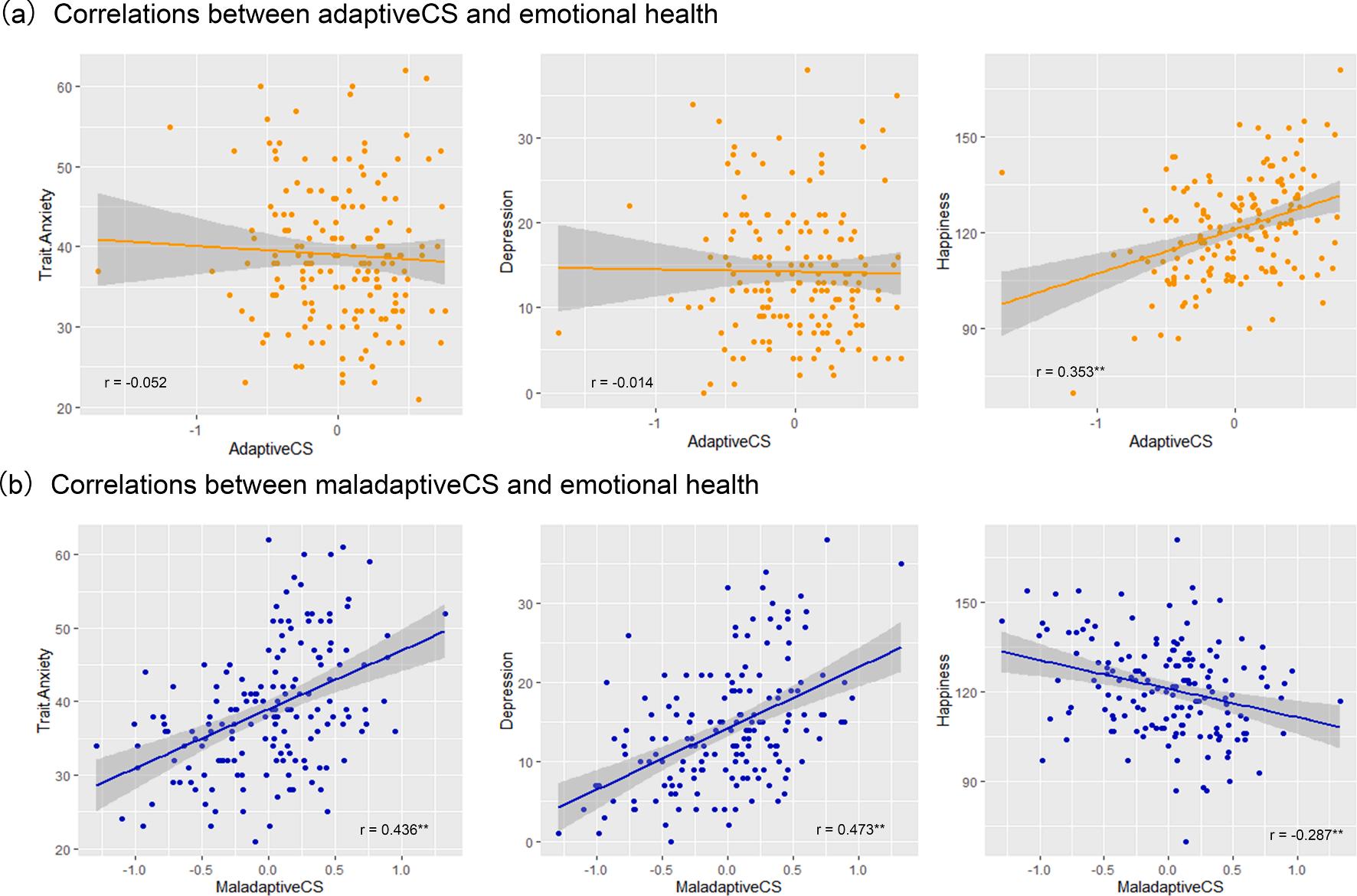Brain and Cognition 146 (2020) 105631
Contents lists available at ScienceDirect
Brain and Cognition journal homepage: www.elsevier.com/locate/b&c
The role of frontal-subcortical connectivity in the relation between coping styles and reactivity and downregulation of negative emotion Xiaoqin Wang a, b, c, 1, Scott D. Blain d, 1, Dongtao Wei a, b, c, Wenjing Yang a, b, c, Junyi Yang a, b, e, Kaixiang Zhuang a, b, c, Li He a, b, c, Colin G. DeYoung d, *, Jiang Qiu a, b, c, * a
Key Laboratory of Cognition and Personality (SWU), Ministry of Education, Chongqing 400715, China Department of Psychology, Southwest University (SWU), Chongqing 400715, China Southwest University Branch, Collaborative Innovation Center of Assessment toward Basic Education Quality, Beijing Normal University, Beijing 100875, China d Psychology Department, University of Minnesota Twin Cities, MN, USA e School of Education Science, Xinyang Normal University, Xinyang 464000, China b c
A R T I C L E I N F O
A B S T R A C T
Keywords: Maladaptive coping styles Emotion regulation Generalized psychophysiological interaction Amygdala Prefrontal cortex
Coping styles (CS) reflect individuals’ habitual use of strategies for coping with negative events in daily life. Although research into coping has not reached consistent agreement about classifying coping strategies as either inherently adaptive or maladaptive, the influence of maladaptive CS on mental health is noticeable. CS might also be related to emotion regulation and associated brain systems. Participants (N = 165) completed mea surements of CS, trait emotions including trait anxiety, depressive symptoms and happiness and then performed an emotion regulation task, in conjunction with functional MRI. Individual differences in maladaptive CS use were associated with higher trait negative emotionality and higher state reactivity of negative emotion. Con current bilateral amygdala-right middle frontal gyrus (MFG) connectivity during passive negative stimulus processing mediated the relation between maladaptive CS and negative emotion ratings. Psychophysiological interaction analyses showed that maladaptive and adaptive CS were linked to patterns of frontal-subcortical connectivity during state emotion regulation. These results suggest that maladaptive CS might be related to negative emotion processing and weaker spontaneous regulation and indicate that maladaptive CS is a risk factor in individual mental health.
1. Introduction In response to academic, interpersonal and financial stressors, young adults use a variety of cognitive and behavioral strategies to cope (Folkman & Moskowitz, 2004; Legerstee et al., 2011; Litman, 2006). Coping styles (CS) reflect a generalized habitual preference for specific strategies in solving one’s behavioral and emotional problems. It has been suggested that CS can be distinguished as either adaptive or mal adaptive (Billings & Moos, 1981; Carver et al., 1989; Lazarus & Folk man, 1987). Maladaptive CS have been linked to psychopathology symptoms and suggested as risk factors for the development and persistence of psychopathology (Aldao et al., 2014; Aldao & NolenHoeksema, 2010). For example, individuals with depression frequently report maladaptive use of rumination, which refers to repeatedly
recalling negative emotional experiences. Negative self-views and depressive symptoms have also been linked to the use of self-blame or punishment, which refers to aggression toward oneself (Plaufcan et al., 2012; Vasconcelos et al., 2017). In contrast with maladaptive CS, adaptive CS include positive reappraisal—typically characterized as reinterpreting negative emotional events as positive or benign—and acceptance of emotions, which function as protective factors against psychopathology (Aldao et al., 2010; Matsumoto et al., 2008; Hofmann et al., 2010). Inconsistent ideas have arisen regarding the tendency to classify coping strategies as universally adaptive or maladaptive; some empirical evidence shows that the effectiveness of coping strategies such as sup pression and reappraisal on mental health is not uniform (Webb et al., 2012). More recent research has emphasized that coping efficacy may
* Corresponding authors at: Psychology Department, University of Minnesota Twin Cities, MN, USA (C.G. DeYoung). Faculty of Psychology, Southwest University, Chongqing 400715, China (J. Qiu). E-mail addresses: cdeyoung@umn.edu (C.G. DeYoung), qiuj318@swu.edu.cn (J. Qiu). 1 These authors contributed equally to this work. https://doi.org/10.1016/j.bandc.2020.105631 Received 31 March 2020; Received in revised form 5 August 2020; Accepted 6 October 2020 0278-2626/© 2020 Elsevier Inc. All rights reserved.

